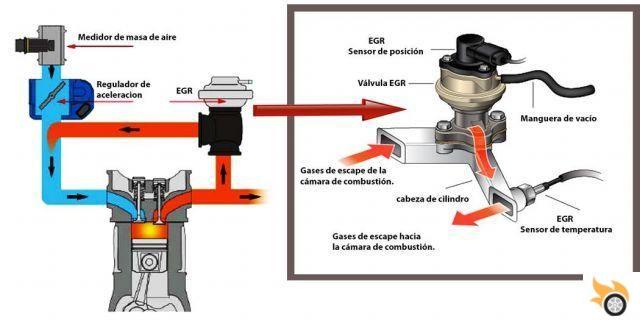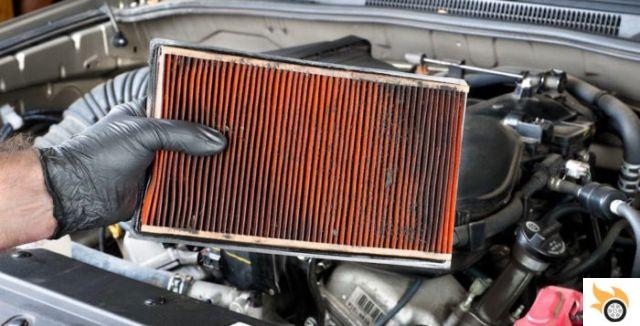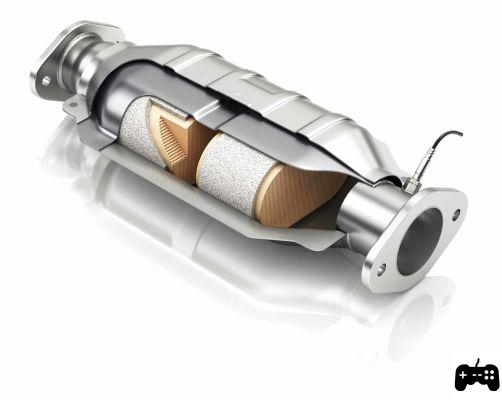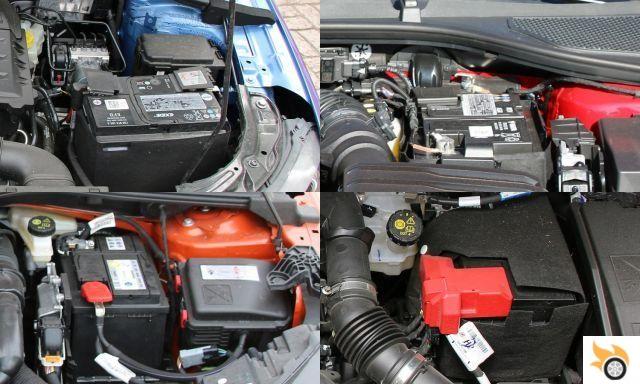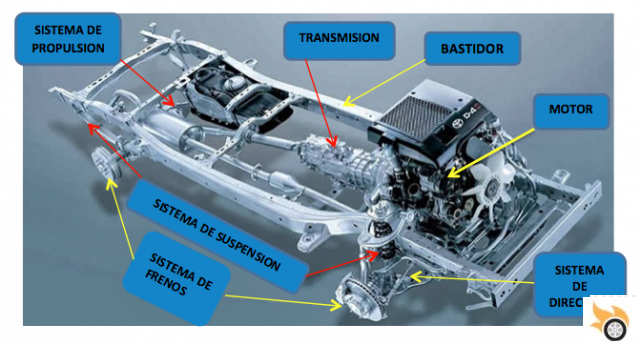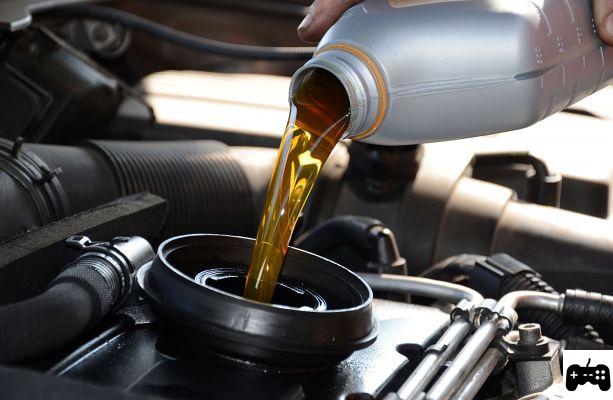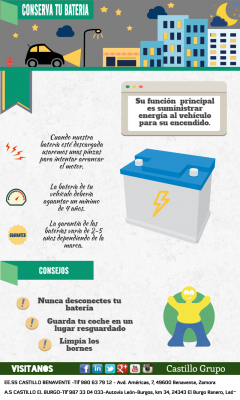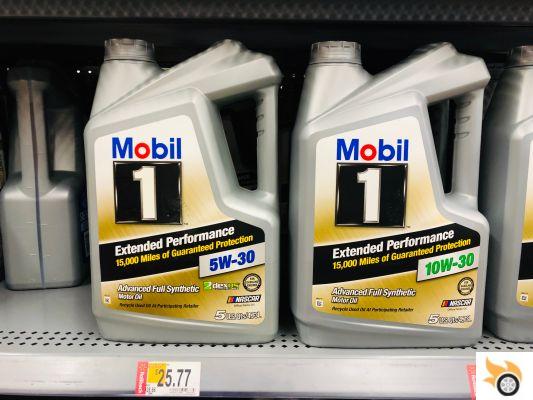
Article: Differences Between 5W-20 and 5W-30 Motor Oil
Welcome to our article where we will discuss the differences between 5W-20 and 5W-30 motor oil, as well as the consequences of using one over the other. We will also answer the question of whether it is possible to mix both types of oil.
1. What do the numbers 5W-20 and 5W-30 mean?
Before we get into the differences between these two types of oil, it's important to understand what the numbers 5W-20 and 5W-30 mean. These numbers represent the viscosity of the oil at different temperatures.
The number 5W indicates the viscosity of the oil at low temperatures, with 5 being the lowest viscosity. This means that the oil flows more easily in cold weather, making it easier to start the engine in extremely cold conditions.
On the other hand, the number after the W indicates the viscosity of the oil at high temperatures. In this case, the 20 or 30 represents the viscosity of the oil at normal engine operating temperatures.
2. Differences between 5W-20 and 5W-30 motor oil
Now that we understand what the numbers mean, we can discuss the differences between 5W-20 and 5W-30 motor oil.
2.1 Viscosity
The main difference between these two types of oil lies in their viscosity. 5W-20 oil is thinner than 5W-30, which means it flows more easily at low temperatures. This is beneficial for cold weather starting and reduces wear on the engine during the first few seconds of operation.
On the other hand, 5W-30 oil is more viscous, making it more suitable for normal engine operating temperatures. Provides better protection against wear and friction under high temperature and load conditions.
2.2 Fuel efficiency
Another important difference between 5W-20 and 5W-30 oil is their impact on fuel efficiency. Due to its lower viscosity, 5W-20 oil tends to reduce the internal resistance of the engine, which can result in a slight increase in fuel efficiency.
On the other hand, 5W-30 oil, being more viscous, can generate higher internal resistance in the engine, which can slightly affect fuel efficiency. However, the differences in fuel efficiency between the two oils are minimal and can vary depending on engine design and specifications.
2.3 Manufacturer's recommendations
It is important to consider your vehicle manufacturer's recommendations when choosing between 5W-20 and 5W-30 oil. Every engine is designed to run on a specific type of oil, and using the wrong one can affect performance and engine life.
Check your vehicle's owner's manual for recommended oil specifications. If you don't have access to the manual, you can contact the manufacturer or consult a trusted mechanic.
3. Consequences of using the wrong oil
Using the wrong oil in your engine can have negative consequences. Here are some of the possible consequences:
3.1 Premature engine wear
Using an oil with the wrong viscosity can cause premature engine wear. If you use an oil that is too thin, such as 5W-20, in an engine that requires a more viscous oil, the lubricant may not provide adequate protection, resulting in increased wear on internal engine parts.
On the other hand, if you use an oil that is too viscous, such as 5W-30, in an engine that requires a thinner oil, the excessive viscosity can lead to increased friction and wear in the engine.
3.2 performance issues
Using the wrong oil can also affect engine performance. The wrong oil can cause insufficient lubrication, which can result in decreased performance, slower throttle response, and loss of power.
Also, incorrect oil can affect the sealing ability of piston rings and gaskets, which can lead to oil leaks and a decrease in engine compression.
3.3 Emissions problems
Using the wrong oil can also have an impact on vehicle emissions. Improper oil can lead to increased deposit and residue formation in the engine, which can adversely affect the operation of the emission control system.
Also, if you use an oil that is too viscous, there can be increased resistance in the oil passages and reduced circulation of lubricant, which can affect the efficiency of the emission control system.
4. Is it possible to mix 5W-20 and 5W-30 oil?
A common question is whether it is possible to mix 5W-20 and 5W-30 oil. The answer is yes, it is possible to mix both types of oil. However, it is important to take into account some considerations:
First of all, if you decide to mix 5W-20 and 5W-30 oil, it is advisable to do it in equal proportions to maintain an average viscosity. For example, you can mix 1 liter of 5W-20 oil with 1 liter of 5W-30 oil.
Second, keep in mind that when you mix oils of different viscosities, you will be getting an intermediate viscosity. This can slightly affect engine performance and protection, especially in extreme temperature conditions.
Lastly, it's important to remember that mixing oils can void a manufacturer's warranty and is not recommended in new vehicles or those that require a specific oil based on manufacturer's specifications.
Frequently Asked Questions (FAQs)
1. What is the difference between synthetic and conventional oil?
The main difference between synthetic and conventional oil lies in its manufacturing process and its properties. Synthetic oil is produced through the synthesis of specific molecules, which allows it to have greater purity and uniformity in its properties. This translates into better engine protection and performance, especially in extreme temperature conditions.
On the other hand, conventional oil is obtained through the refining of crude oil. Although it is cheaper, it tends to have lower thermal stability and a shorter service life compared to synthetic oil.
2. When should I change my engine oil?
The oil change frequency may vary depending on the manufacturer and the conditions of use of the vehicle. However, as a general rule, it is recommended to change the oil every 5.000 to 7.500 kilometers or every 6 months,











